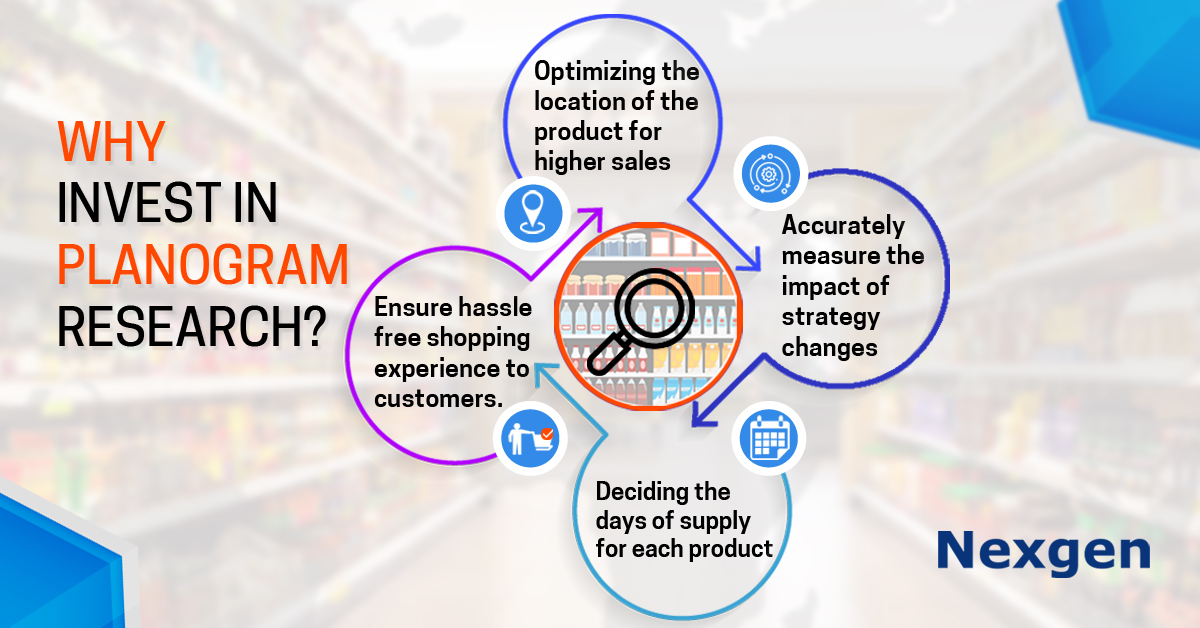Planograms are an integral part of any retail store. In simple words, these are visual merchandising tools that contain detailed drawings of the store layout, that guide retailers in deciding what, where and how products should be placed on shelves. A well-designed planogram can improve sales, minimize overall costs and provide pleasant shopping experiences to customers.
That being said, creating and implementing a planogram is not a one-time process. Especially, in retail, planograms may have to be redesigned so as to accommodate new launches or seasonal products. In spite of the cost and labor involved in planogram resets, can retailers know whether they have a great planogram that will increase sales and enhance customer’s shopping experience? This is where planogram research comes to play. Planogram research provides useful insights into customer’s buying behavior that will help retailers in optimizing the shelves and make the most of the limited space available. Given below is a set of questions that planogram research can answer.
- What is the ideal shelf location for a particular brand?
- How many facings should be provided to a brand?
- How to ensure hassle free shopping experience to customers?
- Is horizontal or vertical blocking the best strategy?
Why invest in planogram research?
1. Optimized shelves resulting in higher sales
Retail shelves do much more than displaying products in a store- it helps to market brands and aid in analyzing customer’s preferences. Therefore, making minor changes to assortment, number of facings or shelf location can have a huge impact on sales. Planogram research allows retailers to know which of the above elements to change, for better understanding and influencing shopping behavior.
2. Implementing changes to existing business:
Changes in existing business may require planograms to be altered. In such situation, planogram testing is a crucial tool in understanding the success rate of big changes or reverse category performance lagging. With advanced research tools, retailers can accurately measure the impact of such changes in customer’s buying behaviour.
3. Well organized shelves for enhanced shopping experience
Now-a days, brands are focusing on point of purchase more than ever before. They have realized the impact of neat, organized shelves on customer’s buying behavior. In an unorganized store, customers may face difficulty in finding desired products, causing them to switch stores or look for other alternatives. Here, planogram research plays a vital role in educating retailers where and how to position their products for increased visibility to customers.
Overview of Nexgen POG
Nexgen POG is a powerful, cloud-based planogram software, designed for quick and easy planogramming. No prior training is required to use the software as anyone from an expert to novice to create store specific planograms in minutes. It comes with an array of features like customizable templates, bulk upload of images, multi device compatibility, report generation, easy compliance and much more. Nexgen POG’s affordable pricing and licensing model ensures full value for your money
Get Your Free Trial Now